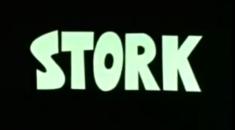AustLit
 5800800131640322972.jpg
5800800131640322972.jpg
Screen cap from promotional trailer
Adaptation of
The Coming of Stork
1970
single work
drama
Issue Details:
First known date:
1971...
1971
Stork
The material on this page is available to AustLit subscribers. If you are a subscriber or are from a subscribing organisation, please log in to gain full access. To explore options for subscribing to this unique teaching, research, and publishing resource for Australian culture and storytelling, please contact us or find out more.
Film Details - Bilcock and Copping Film Productions ; Tim Burstall and Associates , 1971
Producers:
Tim Burstall
Production Companies:
Bilcock and Copping Film Productions
Tim Burstall and Associates
Finance Organisations:
Australian Film Commissions Experimental Film and Television Fund
Director of Photography:
Robin Copping
Editors:
Edward McQueen-Mason
Production Designers:
Leslie Binns
Composer:
Han Poulsen
Cast:
Incl. Bruce Spence (Graham 'Stork' Wallace), Graeme Blundell (Westy), Sean McEuan (Tony), Helmut Bakaitis (Clyde), Jacki Weaver (Anna), Larry Stevens (Farmer), Nanette Goode (Farmer's Wife), Dennis Miller (University Lecturer), Brian Moll (Priest), Michael Duffield (Judge), David Bilcock (Explorer), Robin Copping (Explorer), Alan Finney (Tailor), George Whaley (Businessman), Lynne Flanagan (Matron), Peter Cummins (Sculptor), Brendan Cassidy (Gallery Manager), Madeleine Orr (Stork's Mother), Peter Green (Clergyman), Han Poulsen (Vocalist), Jan Friedl (Women's Libber), Terry Norris (Anna's Father), Max Gillies (Uncle Jack), Kerry Dwyer (Nun - uncredited).
Release Dates:
1. 27 December 1971 (St Kilda Palais, Melbourne - premiere).
2. Re-released on DVD format in 2004 by Roadshow Entertainment.
Location:
- Melbourne
Awards:
- Australian Film Institute Awards (1972) Golden Reel Award - Burstall, Bilcock and Copping (winners). The win also saw the producers awarded the new Australian Film Development Corporation prize of $5,000 prize for best narrative feature.
- Australian Film Institute Awards (1972) Best Direction - Tim Burstall (winner). Burstall was also awarded the City Cinemas-Village Theatres Group $1,000 prize for Best Direction.
- Australian Film Institute Awards (1972) Hoyts Prize for Best Actor - Bruce Spence (winner)
- Australian Film Institute Awards (1972) Hoyts Prize for Best Actress - Jackie Weaver (winner)
Notes:
1. Assistant Director: Ross Dimpsey.
2. Stork was produced for a total cost of some $70,000, with only $7000 provided by government subsidy, and was initially exhibited by Burstall and Associates. The premiere season at the St Kilda Palais ran for a surprising six weeks, and was followed by successful seasons at Melbourne's Balwyn and Metro cinemas. This attracted the interest of Roadshow, who subsequently took over the Australia-wide distribution. The original 16mm prints had to be reprocessed into 35mm for exhibition at the major cinemas.
3. Despite being an independent, low-budget, homegrown movie, produced at a time when the Australian public was suspicious of the quality of Australian films, Stork became a commercial and critical success for director/producer Tim Burstall.
4. Further reference: Andrew Pike and Ross Cooper. Australian Film 1900-1977, A Guide to Feature Film Production (1980, q.v.), pp. 336-337.


